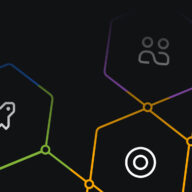Is there a shortcut to innovative ideas? Some say hackathons are a pressure cooker for out-of-the-box thinking, and others say they’re just a recipe for half-baked prototypes. Join host Christine Dela Rosa and debaters Shannon Winter and Kelvin Yap as they argue whether hackathons really are good for business.
In this episode, Atlassian’s Philip Braddock, Workday’s Alex Jones, and service design director Rachel Lane share their experiences with hackathons – from the innovative and inclusive to the not-so-collaborative.
Episode Takeaways
Transcript
Christine Dela Rosa:
Picture this: you’re in a huge room packed with people. Some are huddled in groups talking excitedly. Others are laser-focused on laptops, typing rapidly. A folding table is covered in greasy, empty pizza boxes and lots and lots of coffee cups. The time? 9:00 PM. Sound like your usual day at the office? Well, it’s certainly not mine. On today’s show, we’re exploring hackathons.
Christine Dela Rosa:
Welcome to Work Check, an original podcast from Atlassian, makers of teamwork software like Jira, Confluence and Trello. I’m your host Christine Dela Rosa. On this show, we take workplace practices and separate the hype from the helpful. Each episode, two Atlassians debate how the practice should be applied, if at all. Today, we have Shannon Winter arguing in favor of hackathons.
Shannon Winter:
Thanks, Christine. Excited to be here.
Christine Dela Rosa:
And Kelvin Yap arguing against companies running hackathons.
Kelvin Yap:
You have Buckley’s chance today, Shannon.
Shannon Winter:
Huh?
Kelvin Yap:
It’s Australian for you are going down.
Shannon Winter:
Your fancy Australian words can’t scare me.
Christine Dela Rosa:
Now all right. All right. Settle down. Now, debaters, I trust you’ve researched your sides thoroughly and brought compelling arguments for today. Just remember you only get three rounds to make your case before one of you goes down in a blaze of glory and the other one just goes down.
Kelvin Yap:
That’s a good one, Christine.
Christine Dela Rosa:
Why thank you, Kelvin.
Shannon Winter:
See you’re sucking up for a win already, Kelvin.
Christine Dela Rosa:
Let’s level set. Workplace hackathons 101. Chances are you’ve heard the term before. The word gets thrown around a lot to describe different technical events, but that’s not always accurate. A hackathon is a problem solving competition. Whoever comes up with the best solution wins. These events might take a single work day or span an entire weekend. Participants group up and work around the clock and when time’s up, the teams pitch their ideas to a panel of judges and someone is crowned the winner.
Christine Dela Rosa:
Many hackathons focus on writing code for software, which is why they’re pretty common in the tech world. But the practice has spread to many other sectors. Hasbro hosted a toy hackathon, New York Fashion Week had one and even the Vatican held a hackathon. Some hackathons are open to the public, so anyone can join. Others are internal, so employees only. For today’s debate, we’re focusing on internal hackathons. The question being, are internal hackathons really good for business?
Christine Dela Rosa:
Round one. Shannon, you are arguing the pro side. Take it away.
Shannon Winter:
Awesome. So let’s start with the obvious point, hackathons are innovation incubators, and they have been since the very beginning. I want to start with a story. Christine, Kelvin, let me take you back to the very first hackathon. The year was 1999 and a bunch of guys from all over the world started arriving in a house in the suburbs of Calgary, Canada. They were all OpenBSD developers and they were trying to do something that had never been done before. Long story short, they wanted to integrate the latest internet protocol, the same we use today, into their open source operating system. If they figured it out, it would be an industry first. And they knew if they were going to do it, they had to host a hacking marathon – a hackathon.
Christine Dela Rosa:
Right.
Shannon Winter:
For nearly a week straight, they programmed their way towards a solution. And then one day they got it.
Speaker 4:
All right. Yeah. All right.
Shannon Winter:
According to the OpenBSD website, there’s even a scrape on the hardwood floor to immortalize the moment that someone pushed their chair back and declared success.
Christine Dela Rosa:
Cue the movie montage.
Shannon Winter:
Right? Point being hackathons are like a pressure cooker for new ideas. You focus a bunch of smart creative minds on solving a problem and before you know it, they’ve come up with something greater than the sum of their parts. And we’ve seen it in the years since as hackathons have become more and more popular. You all know the Facebook like button?
Christine Dela Rosa:
Yeah.
Kelvin Yap:
Yup.
Shannon Winter:
That was from a company hackathon. Same with the beginning stages of Dropbox business and Microsoft Teams.
Christine Dela Rosa:
Whoa.
Shannon Winter:
At Atlassian, we’ve also had some successes come from our own quarterly hackathon, which we call ShipIt. Here’s Philip Braddock, our global lead for ShipIt, to tell you a bit more.
Philip Braddock:
The gold star standard, if you will, of a ShipIt project that was able to go from purely an idea to actually a go to market product is what was Jira Service Desk.
Christine Dela Rosa:
And is now Jira Service Management. Success.
Philip Braddock:
And there are other ShipIt projects that have greatly influenced our products that are a bit more “invisible”. I remember one project a few years ago where somebody was looking at the load time of the screen in Jira and they realized that if they moved a few lines of code around and they loaded one widget before the other, that the entire screen could load like 13 seconds faster or something like that. That’s not something necessarily that we’re going to do a press release about, of course, but like all of a sudden that is actually benefiting the customers. It’s benefiting the company. It benefits business because there’s less computing time and less this and etc., etc.
Shannon Winter:
Super interesting, right? Hackathons really are an incubator for out of the box ideas you normally wouldn’t have time to explore on top of all your other daily work. And that kind of exploration is good for the customer and the bottom line.
Christine Dela Rosa:
All positive examples. Kelvin, what have you got?
Kelvin Yap:
Great points there, Shannon. But from what I’ve seen, hackathons are actually bad for innovation. I personally love hackathons, but even I could admit if a game-changing product is your barometer for success, you’re setting yourself up for failure. And while you’ve cherry picked a few fun outliers, most of the time hackathon projects, even the winning ones, don’t work out. More often than not, a hackathon gets you some half-baked prototypes that don’t work in the real world, and I’ve lost count of the number of times a flashy presentation wins out over the best idea.
Kelvin Yap:
You can’t hack innovation. It takes patience and discipline and you can’t use hackathons to replace a culture of innovation within a company. I’m sure there are lots of companies that claim they’re innovative because they run a hackathon every once in a while, but they’re really doing the company, their employees, and the concept of hackathons a disservice. Two management experts, Anjali Sastry and Kara Penn, wrote about hackathons for Fast Company. They said you can’t solve problems in a vacuum setting like a hackathon. They found that participants’ ideas were, in their words, “neither feasible nor inventive.”
Christine Dela Rosa:
The conviction, Kelvin! So glad you and Shannon are both passionate. But are hackathons crockpots for innovation or the junk drawer where good ideas go to die? Now I don’t think companies think through how these ideas will translate into the real world all that thoroughly. So, point goes to Kelvin on the con side. Sorry, Shannon. Kelvin, start us off around two, please.
Kelvin Yap:
Gladly. So for my next point, I posit that hackathons are not only bad for innovation, they’re plain bad for team dynamics. Just take that first ever hackathon that Shannon described. Christine?
Christine Dela Rosa:
Yes.
Kelvin Yap:
What types of people were you picturing when you heard that story?
Christine Dela Rosa:
Probably men, on the younger side, passionate about coding. Yeah?
Kelvin Yap:
Exactly.
Christine Dela Rosa:
Yes.
Kelvin Yap:
And that’s because hackathons tend to attract a pretty specific crowd. According to Major League Hacking who run student hackathon competitions all over the world, they’re about 73% male and about 84% white or Asian, and they skew heavily towards engineers. Plus, hackathons appeal most to the type of people who have the time and the energy for staying up all night, working around the clock and eating garbage all weekend.
Christine Dela Rosa:
Yeah. That may be true, but that’s more of a symptom of a wider industry problem.
Kelvin Yap:
Sure. Computer science in the US are male-dominated and overwhelmingly white, and that trickles into hiring. And apparently, hackathons.
Christine Dela Rosa:
I will have you know I’ve pitched in three external hackathons, placed in two Startup Weekend hackathons, and I have won my fair share of internal ShipIts.
Shannon Winter:
Dang go, Christine!
Christine Dela Rosa:
Am I humble bragging?
Kelvin Yap:
Yes.
Christine Dela Rosa:
But is that annoying?
Kelvin Yap:
Also, yes.
Christine Dela Rosa:
Okay. Fine. But I say all that for credibility’s sake, because my experiences tell me that not all hackathons produce one-tracked teams with little diversity.
Kelvin Yap:
And that’s great for you and that’s the dream of a hackathon – pulling together different people with varied skill sets to collaborate. But in practice, that’s not always the case. In fact, my guest Rachel Lane had that experience herself at a hackathon.
Rachel Lane:
Maybe I thought that it would be more inclusive than the vibe that was actually there.
Kelvin Yap:
Rachel is a jack of many trades who studied design, digital marketing and computing at university. But when attending hackathons, and she’s been to five, she didn’t always feel like those skill sets were valued.
Rachel Lane:
I was chatting to two developers and they asked me about my role, and I think I was working as a planner or a strategist at the time. When they were asking me what I did, I was saying, “Well, I kind of have to make sure that we set up the project well, that it’s strategically aligned, that we’re solving the right problem the right way.” And they were like, “Oh, you sound like the project mom.” And I’m like, oh, that seems like a pretty sucky description.
Christine Dela Rosa:
That sucks.
Shannon Winter:
Yeah. Seriously.
Kelvin Yap:
Right. It’s disrespectful not to mention kind of sexist. And she’s been to other hackathons where people were not down to cooperate.
Rachel Lane:
I certainly remember turning up at one hackathon and the developer was so adamant about the value of his idea. He wasn’t interested in customer research, wasn’t interested in marketing, wasn’t really interested in working as part of a team. I suppose I have these memories of just everyone working away in silence. It wasn’t necessarily a forum for discussion. It didn’t feel very collaborative.
Kelvin Yap:
I’m all for collaboration, but it doesn’t just happen naturally. If the organizers don’t encourage it, the hackathons can be pretty exclusionary.
Christine Dela Rosa:
Agreed. I mean, if the goal is code-specific, I can understand the focus being on engineers only. But that should be made clear off the bat. Shannon, over to you.
Shannon Winter:
Well, that’s a tough story and I really feel for Rachel, but I do want to point out that she was describing an external hackathon where people turn up and collaborate with strangers. And while we’re supposed to be focusing on internal hackathons, Kelvin, it is true that this kind of bro coder culture she experienced has definitely been a problem for hackathons…and let’s be honest, the wider tech industry.
Kelvin Yap:
For once in my life, Shannon, I agree with you.
Shannon Winter:
Whoa, let me bask in this moment. Okay. But all that being said, I do want to highlight that for a lot of companies, internal hackathons can actually be a tool for making the workplace more inclusive. I spoke with Alex Jones, a product manager at Workday. Their company hackathons are really important part of building an inclusive company culture. In fact, Alex told me about a Workday event where he met a new employee who had never participated in a hackathon before.
Alex Jones:
He had never even heard of the problem we were trying to solve, had really no experience with the sort of technologies we were working with at the time, and just wanted to do something different. And he was a little bit intimidated. I think it was his first hackathon ever in Workday or outside of it. We just rolled with it and drew him right in, started riffing on ideas as if he had been there the whole time. And I think he ended up making a really big contribution to the team, which is important, but honestly, that’s, I would say, of secondary importance to him just feeling settled and part of the culture and just more plugged in than he would have otherwise.
Shannon Winter:
See – whether or not that team comes up with a brilliant marketable project is kind of besides the point.
Kelvin Yap:
Is it?
Shannon Winter:
It’s really an opportunity for colleagues to get to know each other on a deeper level while having a bit of fun.
Alex Jones:
One of the things they really try and emphasize is to, one, to get out of your comfort zone and work on something you hadn’t worked on before, but even more importantly, to work with different people outside of your team that you hadn’t normally worked with before, maybe you’ve never even met before. And so in doing that and really trying to make sure that everyone is involved or at least invited ultimately results in a more sort of inclusive culture.
Shannon Winter:
No better way to build a team than to get creative together. And you don’t have to know how to code to get involved. Great hackathon projects need all types of skill sets. ShipIt even has a prize specifically for non-technical projects to make sure everyone feels welcome to contribute, regardless of team or role.
Christine Dela Rosa:
Playing on what I know, Shannon. I see what you’re doing. And with that, round two is over. So, are hackathons actually good for team building? I hear you, Kelvin. Hackathons have a ways to go to become equitable, but as I’ve said, I’ve seen firsthand how they can also encourage collaboration across skill sets and build trust. So Shannon, point goes to you on the pro side.
Shannon Winter:
Oh yeah.
Kelvin Yap:
Boo.
Shannon Winter:
Shannon, start us off for round three.
Christine Dela Rosa:
What is your final argument?
Shannon Winter:
So as I’ve said, hackathons give you a chance to work with people with different skill sets, but they also allow you to learn from each other. What better way to learn new skills than by diving right in and getting your hands dirty? Major League Hacking, the organization we talked about before, found that 86% of students participating in hackathons said they learned skills they couldn’t learn in a classroom. And a third of these students thought the skills they developed in a hackathon setting actually helped them land a job.
Christine Dela Rosa:
Whoa.
Shannon Winter:
Pretty cool. How could that be a bad thing? It’s a chance to learn and try new things and not just for students. Phil said the same thing about ShipIt.
Philip Braddock:
And so it’s sort of this boundaryless opportunity to really pursue creative passions and to just try something. And through the lens of an agile mindset, ShipIt is arguably the most pure opportunity to learn from your failures with effectively no consequences. And so sometimes what you’ll see is someone says, “Hey, I tried this thing. This is as far as I got, but here’s the idea that I’m trying to pursue,” and people will still see value in that.
Shannon Winter:
See – hackathons are good for employees, creative skill building, team building, and most importantly, a whole lot of fun.
Christine Dela Rosa:
I feel that. It’s a time to break from the day to day. I want that myself.
Kelvin Yap:
Hey now, no coming to conclusions just yet, Christine.
Shannon Winter:
I think she’s just processing my helpful points.
Christine Dela Rosa:
Okay. Okay. You’re both right. Kelvin, I will reserve judgment. And with that said, the floor is yours.
Kelvin Yap:
Thank you. So I’ll concede that hackathons are great for going deep on skill-building for individuals and problem solving for companies. In fact, I’m glad to hear that some people are getting stuff out of hackathons.
Shannon Winter:
I hear a but coming.
Kelvin Yap:
But for a lot of other hackathon participants, they’re taking away more than they give. What am I talking about? Exploitation.
Christine Dela Rosa:
There it is.
Shannon Winter:
Told you.
Kelvin Yap:
A professor of sociology at the CUNY Graduate Center named Sharon Zukin did a study on hackathons. And the result: She called them “a powerful strategy for manufacturing workers’ consent in the ‘new’ economy.
Christine Dela Rosa:
Strong words.
Kelvin Yap:
Basically, they use fun vibes, snacks and prizes to get free labor out of employees or participants. For lots of workers, hackathons just add to their already full plates. They often happen after hours or on weekends and usually aren’t compensated. And in most hackathons, internal or external, the teams don’t get to keep the intellectual property rights to their own idea.
Christine Dela Rosa:
Yeah. Probably better to build the time into the regular work week, so people are being honored for their time and ideas.
Kelvin Yap:
And it doesn’t change the fact that hackathons have a bad reputation for being exhausting and leaving participants without a lot of tangible stuff to show for their hours.
Shannon Winter:
Other than friendship, but okay.
Kelvin Yap:
Friendship’s overrated.
Shannon Winter:
Well, ours is just over.
Christine Dela Rosa:
Okay. I think I know where you both stand, so I’m just going to call it. That ends round three. Now, are hackathons more hands-on learning opportunities or exploitative free labor ploys? If staff are participating willingly, I lean towards the former. Which means, the winner of today’s debate is Shannon on the pro side!
Shannon Winter:
Yes!
Kelvin Yap:
Boo. This is rigged.
Christine Dela Rosa:
I really do agree with a lot of your points, Kelvin. Hackathons have their downsides, especially if they don’t keep staff wellbeing and growth in mind.
Kelvin Yap:
Exactly.
Christine Dela Rosa:
So how do you host an internal hackathon that’s both productive and inclusive? First and foremost, be clear about goals, identify which skill sets are needed, and ensure participation is inspirational and not just adding to employees’ plates. This isn’t a bait and switch for free labor. With all that in mind, hackathons can be sources of bonding, learning, and getting a lot done in a short amount of time. That’s all for our debate on hackathons. Shannon and Kelvin, thank you for bringing your A games today.
Shannon Winter:
Well, at least one of us did.
Kelvin Yap:
You just got lucky.









































